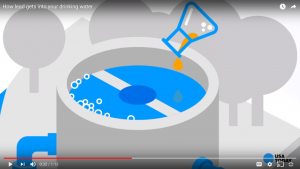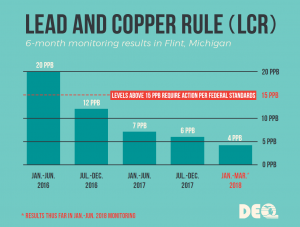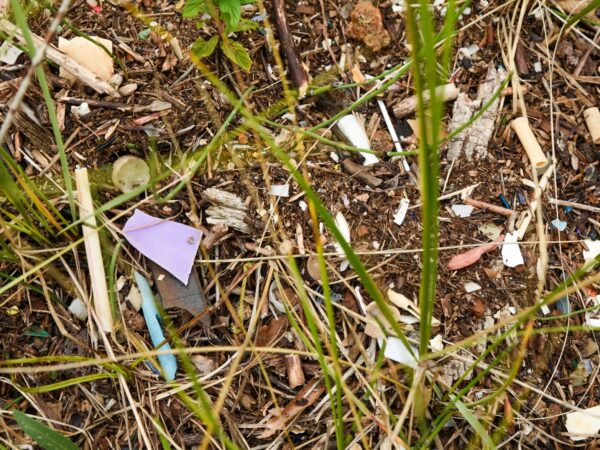
Improving drinking water quality was one of the campaign pledges Michigan Gov. Gretchen Whitmer made during her successful campaign in 2018.
“We must proactively work with communities and local partners to address lead in homes, pipes, schools and buildings so that this tragedy (in Flint) doesn’t happen again,” she said in her policy plan for the Great Lakes.
The agency charged with delivering on those promises is the former Department of Environmental Quality, now titled the Department of Environment, Great Lakes and Energy.
EGLE last week launched a series of Michigan Safe Drinking Water Virtual Town Halls designed to explain the state’s sampling procedures for lead and an explanation of the Lead and Copper Rule adopted last year.
But multiple Michigan water suppliers have taken issue with some of the new regulations they are subjected to under this new rule.
Flint crisis drives new rule
In the wake the Flint water crisis, former Gov. Rick Snyder pledged to develop a standard for lead in water. It was to be more stringent than the federal standard, which Snyder called “dumb and dangerous.”
There are a handful of targeted changes with the new rule, adopted in June 2018.
The amount of lead allowed in water before water systems are required to take action will decrease from the current federal standard of 15 parts per billion (ppb) to 12 ppb, starting 2025.
The rule requires water suppliers to replace all lead service lines by 2041, including lines on private property. Replacement of lines on a homeowner’s property is normally the responsibility of the owner.
An exemption from the deadline is possible with EGLE approval.
Municipalities that supply water objected to the rule, characterizing it as an unfunded mandate that would increase costs for ratepayers if implemented, many of whom cannot afford the increased expense.
A coalition of water suppliers including the Detroit Water and Sewerage District, Oakland County and the Great Lakes Water Authority filed suit in December 2018 in Michigan’s Court of Claims to invalidate the rule.
Cost of removing lead lines remains a sticking point
Oakland County is “not suing to negate the rule,” water commissioner Jim Nash said.
Nash supports lowering the actionable standard to 12 ppb and wants to resolve differences without a lawsuit. But he claims the provision of the rule that requires suppliers to replace service lines on private property violates the state constitution.
Attorney General Dana Nessel’s office represents the state in the suit, and Nash said Oakland County has been meeting with the state’s attorneys. He declined to characterize the meetings as negotiations but more as state attorneys listening to the plaintiff’s concerns.

Workers in Northwest Detroit work on replacing a water line, Photo by Anthony Lanzilote courtesy of bridgemi.com
Nessel’s office declined to comment, based on a policy of not publicly discussing pending litigation. Whitmer’s office also declined to comment.
Detroit Water and Sewerage District “does not dispute that the lead service lines should be removed,” spokesperson Tiffany Jones said. “We do believe removal of the lines will help protect public health. However, our concerns are how to do it in the most effective way and how to pay for it.”
The Natural Resources Defense Council has been active on drinking water quality in Michigan since early in the Flint water crisis and was an early supporter of the new rule.
The argument by the water utilities that the rule is too financially burdensome is “not a legal argument,” staff attorney Jeremy Orr said.

How lead gets into your drinking water, Video by Ramon Padilla, Karl Gelles and Shannon Green, USA TODAY
Water suppliers must use revenue they collect from customers to pay for lead line removal that is privately owned, and state grants and loans will be available to assist, according to information on the Lead and Copper Rule available online.
Whitmer’s budget includes $37.5 million for implementation of the Lead and Copper Rule, Whitmer spokesperson Tiffany Brown said.
“This lawsuit is a threat to necessary safe drinking water protections and puts into jeopardy the health and well-being of all Michiganders —especially children who are most vulnerable to lead in drinking water,” Orr said.
The town halls EGLE hosted were “purely educational” and not connected to the litigation, spokesperson Scott Dean said.
A judge is expected to rule within weeks on whether the case brought by the water suppliers can proceed or will be dismissed.





